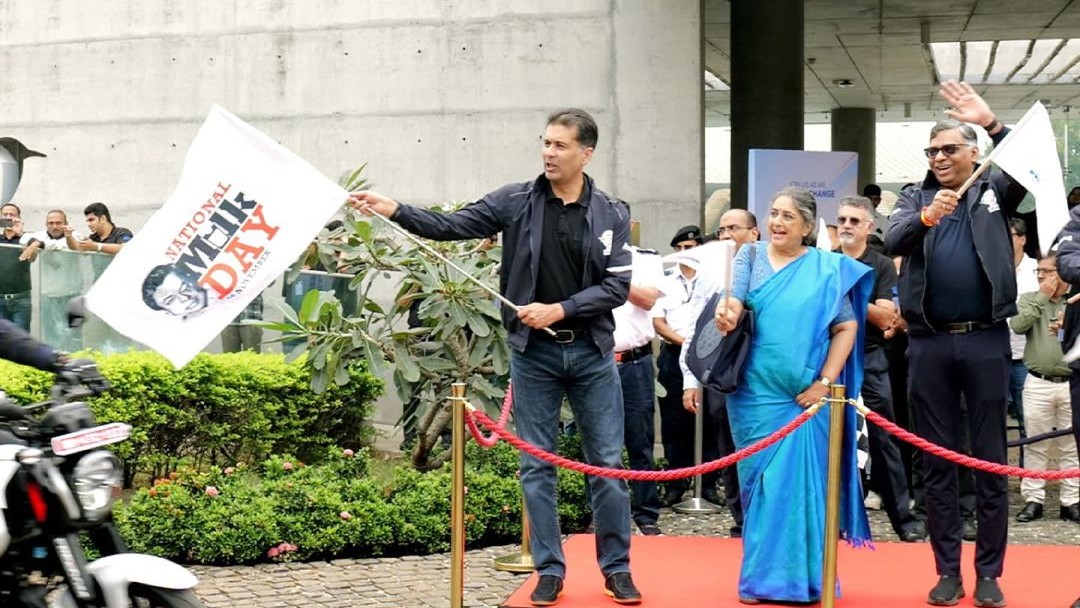PUNE VIDEO: Rajiv Bajaj, Jayen Mehta & Nirmala Kurien Flag Off ‘Clean Fuel Rally’ From Pimpri-Chinchwad’s Akurdi | IG/bajajfreedomcng
On the occasion of National Milk Day (November 26), Amul is honouring Dr Verghese Kurien, who is credited for the ‘White Revolution’ and called the ‘Milkman of India’ due to his significant contributions to making the country self-sufficient in milk production and transforming the dairy industry, with a ‘Clean Fuel Rally’, powered by Bajaj Freedom CNG bikes.
The rally began on Friday from the Bajaj Auto plant in Pimpri-Chinchwad’s Akurdi. Rajiv Bajaj, MD, Bajaj Auto Ltd, Nirmala Kurien, daughter of Dr Verghese Kurien and Jayen Mehta, MD, Amul (GCMMF), flagged off the rally, which received enthusiastic participation from 24 bike riders. Bajaj and Mehta also gave it a shot at riding the bikes for a little distance.
Four rallies are being org.sed from across India to spread the message of compressed biogas (CBG), which can be used to power bikes and cars as a clean fuel. These rallies from Pune, Jammu, Kolkata and Gandhinagar will culminate in Delhi on November 26.
Speaking on the occasion, Nirmala Kurien said using clean fuel is a step towards tackling pollution. “Climate change has today become the biggest concern. Pollution from vehicles contribute to it in a major way. This endeavour to use clean fuel in vehicles is a step forward in tackling the pollution problem.”
Rajiv Bajaj noted that this event brought together two of the biggest Indian brands—Amul and Bajaj. In his speech, he said that his father Rahul Bajaj is called the “scooterwala of India” and Verghese Kurien is called the “doodhwala of India.” “These were the two great sons of India,” he added. The Bajaj Auto MD also complimented Amul for its pioneering work in the dairy industry. In conclusion, he shared an important marketing tip, “Do not expand the brand; expand the business of the brand.”
Jayen Mehta shared that Amul has boosted social, economic and infrastructural progress in rural areas to benefit the dairy farmers. He noted that one such benefit that has been extended to the farmers is via biogas, which will be scaled up to cover 18,600 villages across Gujarat. “This model has been split into Individual Biogas Unit and Institutional Biogas Unit. At the individual level, households collect cow dung from their sheds and deposit it into the biogas pit that is on their property to create clean energy that they can use at home for lighting up chulhas. While at the institutional level, farmers across the village are encouraged to give, as well as paid for their cow dung, which is deposited at the Institutional Biogas Plant which is then compressed and used to power biogas cars,” he said. “This helps create overall sustainable development, financial empowerment, a dung-free village, fuel for vehicles and more. This will help further the growth of the Indian dairy market, bring about progress to dairy farmers, and overall champion circular economy,” Mehta added.

